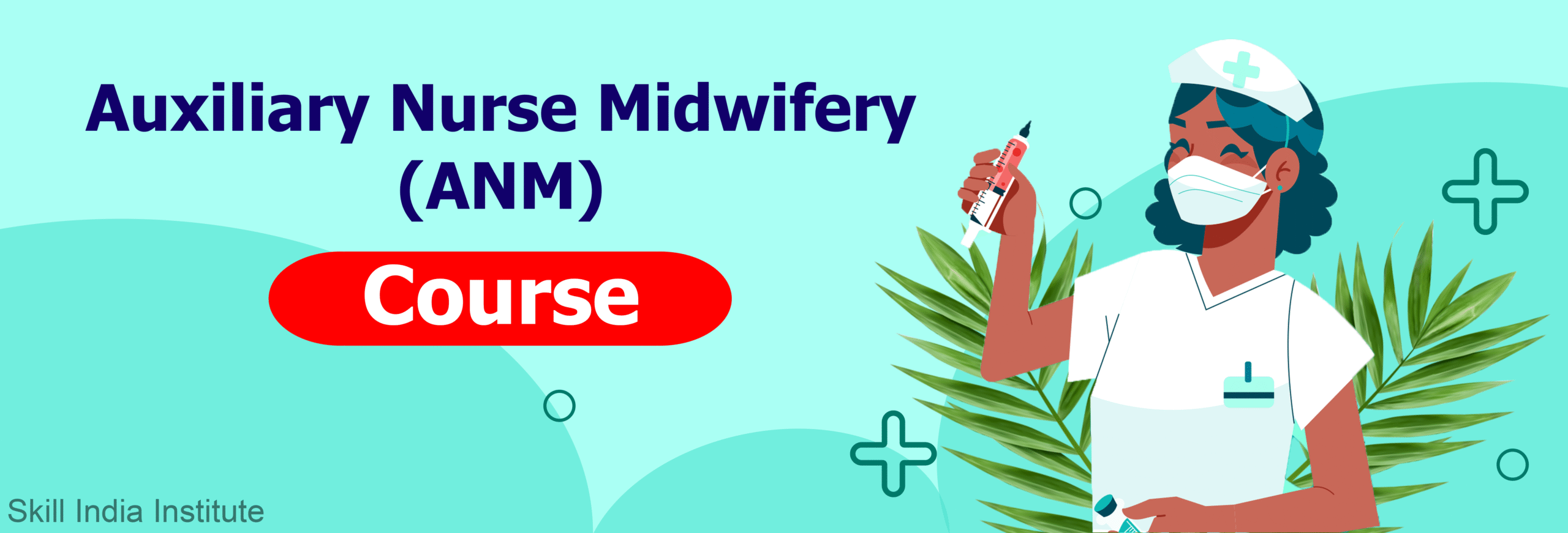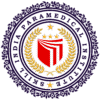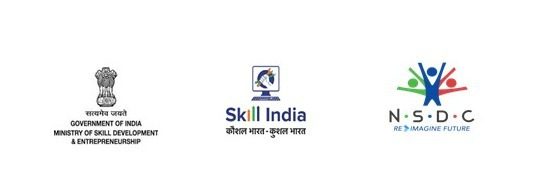Auxiliary Nurse Midwifery (ANM) Course: Comprehensive Overview

1. What is the ANM Course?
The ANM course is focused on training students to provide primary healthcare services, assist in childbirth, and support medical professionals in delivering healthcare services. It plays a crucial role in improving healthcare accessibility, especially in rural and semi-urban regions. ANM professionals are key contributors to maternal and infant health by offering pre- and post-natal care, immunizations, and basic medical treatments.2. Duration of the ANM Course
The ANM course typically lasts for 2 years, including 6 months of internship. The program is structured to include both theoretical instruction and practical training, allowing students to gain hands-on experience in healthcare settings.3. Eligibility Criteria
To enroll in the ANM course, candidates must generally meet the following requirements:- Educational Qualification: Completion of 10+2 (higher secondary education) in any stream from a recognized board.
- Minimum Age: Candidates must be at least 17 years old at the time of admission.
- Minimum Marks: Some institutions may require a minimum of 40-50% in the 10+2 exams.
- Health Criteria: Candidates should be medically fit, as this course involves physical work and assisting patients.
4. Subjects and Curriculum
The ANM curriculum covers a range of topics to equip students with the knowledge and skills required for healthcare delivery. Key subjects include:- Fundamentals of Nursing: Basics of nursing care, patient hygiene, and comfort.
- Community Health Nursing: Understanding healthcare needs in rural and urban settings, promoting community health awareness.
- Midwifery: Techniques of assisting in childbirth, pre-natal and post-natal care, and caring for newborns.
- Health Promotion: Educating the community about health, hygiene, nutrition, and preventive healthcare.
- Nutrition: Understanding the dietary needs of mothers, infants, and general patient care.
- Primary Healthcare: Training in first-aid, emergency care, immunizations, and basic diagnostic procedures.
- Environmental Sanitation: Ensuring proper sanitation practices in healthcare environments to prevent infections.
- Medical-Surgical Nursing: Basics of assisting in minor surgeries and wound care.
- Mental Health Nursing: Introduction to the care of patients with mental health conditions.
- Pharmacology: Understanding common medications and their administration.
- Child Health Nursing: Focus on the health and well-being of children from birth to adolescence.
- Assisting with deliveries.
- Administering immunizations and medications.
- Conducting health camps in rural areas.
- Providing first-aid and basic care in emergency situations.
5. Role and Responsibilities of ANM Professionals
ANM nurses are trained to provide comprehensive healthcare support. Their primary responsibilities include:- Assisting in childbirth and providing postnatal care.
- Administering vaccines and conducting health check-ups.
- Providing education and awareness on family planning, hygiene, and nutrition.
- Supporting healthcare services in rural and underprivileged communities.
- Offering primary healthcare and assisting doctors and nurses in patient care.
- Identifying and addressing common health problems in communities.
6. Career Opportunities After ANM
After completing the ANM course, graduates can explore several career opportunities in both public and private sectors. Common job roles include:- Community Health Worker: Working in rural or urban settings to promote health and hygiene, offer vaccinations, and conduct awareness programs.
- Home Healthcare Nurse: Providing nursing care to patients at home, especially for the elderly and post-operative patients.
- Maternity Care Assistant: Assisting in maternal healthcare units of hospitals or clinics, especially in delivery and postnatal care.
- Health Visitor: Educating families and communities on preventive health measures, family planning, and child healthcare.
- Primary Healthcare Worker: Working in primary healthcare centers, offering basic medical services to underprivileged populations.
- Private Nurse: Providing nursing care to individuals or families in private homes or healthcare settings.
7. Scope for Further Studies
After completing the ANM course, students have the opportunity to pursue higher education and advance their nursing careers. Common progression options include:- General Nursing and Midwifery (GNM): A 3-year diploma program that provides more comprehensive training in nursing and midwifery. It opens the door for broader career prospects in hospitals and healthcare institutions.
- Bachelor of Science in Nursing (B.Sc Nursing): A 4-year undergraduate program that allows students to become registered nurses (RNs) and pursue more advanced roles in the nursing field.
- Post-Basic B.Sc Nursing: A 2-year program designed for ANM or GNM graduates who wish to further specialize and enhance their qualifications in nursing.
8. Advantages of the ANM Course
The ANM course provides a range of benefits, particularly for those interested in contributing to the healthcare sector:- Short Duration: The course can be completed in just two years, allowing students to quickly enter the workforce.
- High Demand: There is a consistent demand for qualified ANM professionals, particularly in rural and underserved areas.
- Career Flexibility: ANM graduates can work in a variety of settings, including hospitals, clinics, community health centers, and private homes.
- Community Impact: ANM professionals play a vital role in improving maternal and child health in rural and semi-urban areas.
- Foundation for Further Studies: The ANM course provides a strong foundation for further nursing education, allowing for career advancement.
9. Who Should Enroll in the ANM Course?
The ANM course is ideal for individuals who:- Are passionate about healthcare and community service.
- Want to enter the nursing profession quickly and start a rewarding career.
- Aspire to work in maternal and child healthcare.
- Are interested in working in rural and underprivileged areas to make a direct impact on public health.
- Seek a career with diverse opportunities in the healthcare sector.
10. Conclusion
The Auxiliary Nurse Midwifery (ANM) course is a valuable stepping stone for individuals seeking a career in healthcare, particularly in maternal and child health. With a focus on community health, the course enables graduates to address healthcare needs in underserved populations and make a significant contribution to society. Whether working in hospitals, community health centers, or private care, ANM professionals are essential to promoting healthcare at the grassroots level. For those looking to further their careers, the ANM course serves as a strong foundation for pursuing higher studies and specialized nursing roles.FAQs for Auxiliary Nurse Midwifery (ANM) Course
The ANM course is a 2-year diploma program designed to train students in basic nursing, midwifery, and community healthcare. It equips students with the skills needed to assist in maternal and child healthcare, provide basic medical services, and support community health initiatives.
To be eligible for the ANM course, candidates generally must:
- Have completed their 10+2 education (12th grade) in any stream.
- Be at least 17 years old.
- Have obtained a minimum of 40-50% marks in their 10+2 exams (specific requirements may vary by institution).
The ANM course is typically 2 years long, including 6 months of internship for practical training in hospitals, clinics, or community health centers.
The ANM curriculum covers a wide range of topics, including:
- Fundamentals of Nursing
- Midwifery and Obstetrical Nursing
- Community Health Nursing
- Nutrition
- Environmental Sanitation
- Primary Healthcare
- Child Health Nursing
- Pharmacology
- First Aid The course also involves practical clinical training.
ANM graduates can pursue careers as:
- Community Health Workers
- Primary Healthcare Providers
- Maternity Care Assistants
- Home Healthcare Nurses
- Clinical Assistants in hospitals, clinics, and nursing homes.
They can also work in rural health programs and government health initiatives.
Yes, after completing the ANM course, you can pursue further studies like:
- General Nursing and Midwifery (GNM), a 3-year program.
- Bachelor of Science in Nursing (B.Sc Nursing), a 4-year degree program. These courses provide advanced knowledge and open up broader career opportunities.
Yes, the ANM course is recognized by healthcare bodies like the Indian Nursing Council (INC), as long as it is offered by an accredited institution. Always ensure that the institute offering the course is recognized by the appropriate authorities.
ANM professionals are responsible for:
- Assisting in childbirth and postnatal care.
- Providing immunizations and conducting health check-ups.
- Offering family planning education and healthcare advice.
- Delivering first aid and emergency care.
- Supporting healthcare services in rural and underprivileged communities.
Yes, practical training is a key part of the ANM course. Students undergo clinical rotations and internships in healthcare settings like hospitals, clinics, and community health centers, where they gain hands-on experience in nursing and midwifery.
The fee for the ANM course varies depending on the institution. In India, it typically ranges from INR 10,000 to INR 70,000 per year. It’s advisable to check the fee structure of the specific institution you’re interested in.

